
I had an interest in studying marine biology from a very young age. My intrigue with the ocean was sparked by many summer days on a small beach on the west end of St. Croix in the US Virgin Islands. I swam, snorkelled and played with my family at the surf zone. And, as I snorkelled away from shore, I had frequent visits with sea turtles, fishes, and even dolphins. It was all fascinating to me!
It wasn’t until I started studying marine science in college that I realized that the discipline is more evolved than the exploring, the observations, the collection of data, and the writing of reports. What’s critical, is that proactive conservation action be developed from those observations and data that we generate in the field.
Every single thing about this planet, seen and unseen, is connected to, and exists because of the oceans. From the air that we breathe – when you consider that most of the oxygen on Earth is created by ocean-dwelling phytoplankton, to the seafood that we use for sustenance, to the recreation we enjoy, the transportation opportunities provided, the many traditional and spiritual connections, and even the rain; many processes that sustain life and sustain our human existence are directly linked to our oceans.
As a society, though, we have failed our oceans with pollution, over-extraction, the many impacts of climate change, etc. and we often react rather than proactively plan. Hope is not lost. There are groups of marine scientists in the public, private, and civic sectors working to create those critically needed marine conservation programs intended to reverse the decline. And, while we are often in crisis mode, responding to new diseases, for example, we do also create proactive programs designed to make differences.
Scientists that develop watershed management plans ensure that the soil and man-made pollutants stay on land. These projects improve water quality and allow for safe swimming, bathing and other recreational activities.
Scientists that study fish populations provide recommendations to policy makers and resource managers so that fishers continue to have livelihoods and fish stocks aren’t depleted, ensuring that seafood will make it to your dinner plate tonight.
Scientists that develop coral, mangrove, and seagrass restoration projects ensure that these critically important habitats exist and thrive through the many challenges created by climate change and other man-made impacts. These habitats are not only important for recreation and the tourism industry, they also provide protection to land, property and life from storms and hurricanes.
Scientists that study currents allow the shipping industries to efficiently navigate our water bodies and scientists that study wave energy as it approaches coastal lands help to better understand storm surge, areas prone to flooding and areas that may have the highest potential for and provide the best benefits from restoration.

You see, marine scientists are not beach bums. We do not play in the ocean with turtles, dolphins or orcas (okay, maybe a little). We are a unique group of individuals who have dedicated our lives to saving the oceans from “us” and by doing so, saving ourselves from us. Because the vast majority of the threats that oceans face today are man-made especially the rapid rate at which climate change occurs, it is only fitting that we create remedies to the issues that not only impact sea turtles, reefs and mangroves but undoubtedly impact us every single day.
We can’t do this alone. We need your help. My call to action, on behalf of an amazing field of marine scientist, is that you get involved. We all have a role to play in marine conservation, whether that is personally working to reduce your carbon footprint, to prevent litter and pollution, and/or to adjust your palate and source sustainably harvested foods.
We also need the world to donate. Donate your time or donate funds to support the work on the ground whether it be through the Perry Institute for Marine Science and other local marine conservation organizations, your support will go a long way.
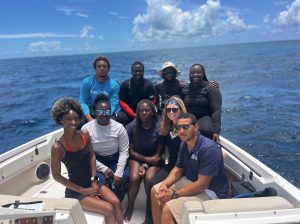
Become a PADI Dive Instructor in The Bahamas | Conservation-Focused IDC
Become a PADI Dive Instructor in The Bahamas | Conservation-Focused IDC | Perry Institute for Marine Science Education & Training Ready to take your diving skills to the next level
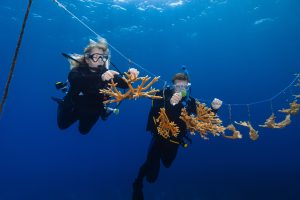
Stream2Sea Coral Care: The World’s First Reef-Positive Sunscreen
Stream2Sea Coral Care: The World’s First Reef-Positive Sunscreen | Perry Institute for Marine Science Conservation Partners Stream2Sea Coral Care: The World’s First Reef-Positive Sunscreen Discover why PIMS has partnered with

Build a Coral Reef for the Holidays | PIMS x Partanna
PIMS is partnering with Partanna to build a 100m² carbon-negative reef. Rick Fox is matching donations up to $25k. Help us build a sanctuary for the future.
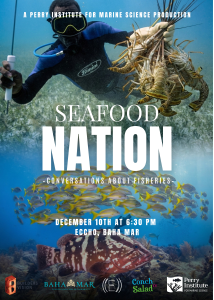
“Seafood Nation” Documentary Premiere Explores the Heart of Bahamian Culture and the Future of Fisheries
NASSAU, The Bahamas | December 5, 2025 – From the bustling stalls of Potter’s Cay to family kitchen tables across the archipelago, seafood is far more than just sustenance in
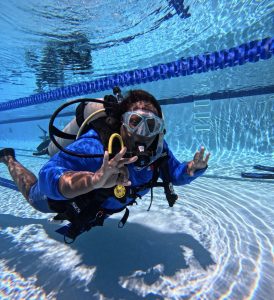
PIMS and Disney Conservation Fund Partner to Train 19 Government Divers
PIMS dive training in Nassau strengthened national coral restoration capacity across government agencies. Bahamas Dive Training Builds National Coral Restoration Capacity Last fall, between the months of September and October,
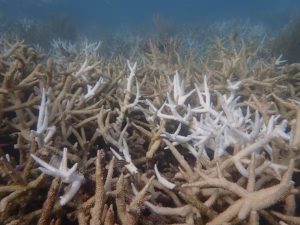
Florida’s Coral Reef Crossed a Line: What Functional Extinction Really Means for Elkhorn and Staghorn Corals
Reefs didn’t just bleach. They functionally vanished in one summer. A new Science study co-authored by researchers from the Perry Institute for Marine Science (PIMS) has found that Florida’s two


